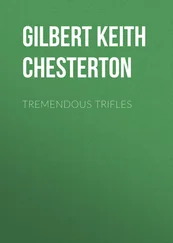Gilbert Chesterton - Manalive
Здесь есть возможность читать онлайн «Gilbert Chesterton - Manalive» весь текст электронной книги совершенно бесплатно (целиком полную версию без сокращений). В некоторых случаях можно слушать аудио, скачать через торрент в формате fb2 и присутствует краткое содержание. Год выпуска: 1912, Издательство: Thomas Nelson and Sons, Жанр: Классическая проза, на английском языке. Описание произведения, (предисловие) а так же отзывы посетителей доступны на портале библиотеки ЛибКат.
- Название:Manalive
- Автор:
- Издательство:Thomas Nelson and Sons
- Жанр:
- Год:1912
- ISBN:нет данных
- Рейтинг книги:3 / 5. Голосов: 1
-
Избранное:Добавить в избранное
- Отзывы:
-
Ваша оценка:
- 60
- 1
- 2
- 3
- 4
- 5
Manalive: краткое содержание, описание и аннотация
Предлагаем к чтению аннотацию, описание, краткое содержание или предисловие (зависит от того, что написал сам автор книги «Manalive»). Если вы не нашли необходимую информацию о книге — напишите в комментариях, мы постараемся отыскать её.
Manalive — читать онлайн бесплатно полную книгу (весь текст) целиком
Ниже представлен текст книги, разбитый по страницам. Система сохранения места последней прочитанной страницы, позволяет с удобством читать онлайн бесплатно книгу «Manalive», без необходимости каждый раз заново искать на чём Вы остановились. Поставьте закладку, и сможете в любой момент перейти на страницу, на которой закончили чтение.
Интервал:
Закладка:
“This man’s spiritual power has been precisely this, that he has distinguished between custom and creed. He has broken the conventions, but he has kept the commandments. It is as if a man were found gambling wildly in a gambling hell, and you found that he only played for trouser buttons. It is as if you found a man making a clandestine appointment with a lady at a Covent Garden ball, and then you found it was his grandmother. Everything is ugly and discreditable, except the facts; everything is wrong about him, except that he has done no wrong.
“It will then be asked, ‘Why does Innocent Smith continued far into his middle age a farcical existence, that exposes him to so many false charges?’ To this I merely answer that he does it because he really is happy, because he really is hilarious, because he really is a man and alive. He is so young that climbing garden trees and playing silly practical jokes are still to him what they once were to us all. And if you ask me yet again why he alone among men should be fed with such inexhaustible follies, I have a very simple answer to that, though it is one that will not be approved.
“There is but one answer, and I am sorry if you don’t like it. If Innocent is happy, it is because he IS innocent. If he can defy the conventions, it is just because he can keep the commandments. It is just because he does not want to kill but to excite to life that a pistol is still as exciting to him as it is to a schoolboy. It is just because he does not want to steal, because he does not covet his neighbour’s goods, that he has captured the trick (oh, how we all long for it!), the trick of coveting his own goods. It is just because he does not want to commit adultery that he achieves the romance of sex; it is just because he loves one wife that he has a hundred honeymoons. If he had really murdered a man, if he had really deserted a woman, he would not be able to feel that a pistol or a love-letter was like a song– at least, not a comic song.”
“Do not imagine, please, that any such attitude is easy to me or appeals in any particular way to my sympathies. I am an Irishman, and a certain sorrow is in my bones, bred either of the persecutions of my creed, or of my creed itself. Speaking singly, I feel as if a man was tied to tragedy, and there was no way out of the trap of old age and doubt. But if there is a way out, then, by Christ and St. Patrick, this is the way out. If one could keep as happy as a child or a dog, it would be by being as innocent as a child, or as sinless as a dog. Barely and brutally to be good–that may be the road, and he may have found it. Well, well, well, I see a look of skepticism on the face of my old friend Moses. Mr. Gould does not believe that being perfectly good in all respects would make a man merry.”
“No,” said Gould, with an unusual and convincing gravity; “I do not believe that being perfectly good in all respects would make a man merry.”
“Well,” said Michael quietly, “will you tell me one thing? Which of us has ever tried it?”
A silence ensued, rather like the silence of some long geological epoch which awaits the emergence of some unexpected type; for there rose at last in the stillness a massive figure that the other men had almost completely forgotten.
“Well, gentlemen,” said Dr. Warner cheerfully, “I’ve been pretty well entertained with all this pointless and incompetent tomfoolery for a couple of days; but it seems to be wearing rather thin, and I’m engaged for a city dinner. Among the hundred flowers of futility on both sides I was unable to detect any sort of reason why a lunatic should be allowed to shoot me in the back garden.”
He had settled his silk hat on his head and gone out sailing placidly to the garden gate, while the almost wailing voice of Pym still followed him: “But really the bullet missed you by several feet.” And another voice added: “The bullet missed him by several years.”
There was a long and mainly unmeaning silence, and then Moon said suddenly, “We have been sitting with a ghost. Dr. Herbert Warner died years ago.”
Chapter V
How the Great Wind Went from Beacon House
Mary was walking between Diana and Rosamund slowly up and down the garden; they were silent, and the sun had set. Such spaces of daylight as remained open in the west were of a warm-tinted white, which can be compared to nothing but a cream cheese; and the lines of plumy cloud that ran across them had a soft but vivid violet bloom, like a violet smoke. All the rest of the scene swept and faded away into a dove-like gray, and seemed to melt and mount into Mary’s dark-gray figure until she seemed clothed with the garden and the skies. There was something in these last quiet colours that gave her a setting and a supremacy; and the twilight, which concealed Diana’s statelier figure and Rosamund’s braver array, exhibited and emphasized her, leaving her the lady of the garden, and alone.
When they spoke at last it was evident that a conversation long fallen silent was being revived.
“But where is your husband taking you?” asked Diana in her practical voice.
“To an aunt,” said Mary; “that’s just the joke. There really is an aunt, and we left the children with her when I arranged to be turned out of the other boarding-house down the road. We never take more than a week of this kind of holiday, but sometimes we take two of them together.”
“Does the aunt mind much?” asked Rosamund innocently. “Of course, I dare say it’s very narrow-minded and–what’s that other word?– you know, what Goliath was–but I’ve known many aunts who would think it–well, silly.”
“Silly?” cried Mary with great heartiness. “Oh, my Sunday hat! I should think it was silly! But what do you expect? He really is a good man, and it might have been snakes or something.”
“Snakes?” inquired Rosamund, with a slightly puzzled interest.
“Uncle Harry kept snakes, and said they loved him,” replied Mary with perfect simplicity. “Auntie let him have them in his pockets, but not in the bedroom.”
“And you–” began Diana, knitting her dark brows a little.
“Oh, I do as auntie did,” said Mary; “as long as we’re not away from the children more than a fortnight together I play the game. He calls me ‘Manalive;’ and you must write it all one word, or he’s quite flustered.”
“But if men want things like that,” began Diana.
“Oh, what’s the good of talking about men?” cried Mary impatiently; “why, one might as well be a lady novelist or some horrid thing. There aren’t any men. There are no such people. There’s a man; and whoever he is he’s quite different.”
“So there is no safety,” said Diana in a low voice.
“Oh, I don’t know,” answered Mary, lightly enough; “there’s only two things generally true of them. At certain curious times they’re just fit to take care of us, and they’re never fit to take care of themselves.”
“There is a gale getting up,” said Rosamund suddenly. “Look at those trees over there, a long way off, and the clouds going quicker.”
“I know what you’re thinking about,” said Mary; “and don’t you be silly fools. Don’t you listen to the lady novelists. You go down the king’s highway; for God’s truth, it is God’s. Yes, my dear Michael will often be extremely untidy. Arthur Inglewood will be worse–he’ll be untidy. But what else are all the trees and clouds for, you silly kittens?”
“The clouds and trees are all waving about,” said Rosamund. “There is a storm coming, and it makes me feel quite excited, somehow. Michael is really rather like a storm: he frightens me and makes me happy.”
“Don’t you be frightened,” said Mary. “All over, these men have one advantage; they are the sort that go out.”
Читать дальшеИнтервал:
Закладка:
Похожие книги на «Manalive»
Представляем Вашему вниманию похожие книги на «Manalive» списком для выбора. Мы отобрали схожую по названию и смыслу литературу в надежде предоставить читателям больше вариантов отыскать новые, интересные, ещё непрочитанные произведения.
Обсуждение, отзывы о книге «Manalive» и просто собственные мнения читателей. Оставьте ваши комментарии, напишите, что Вы думаете о произведении, его смысле или главных героях. Укажите что конкретно понравилось, а что нет, и почему Вы так считаете.









